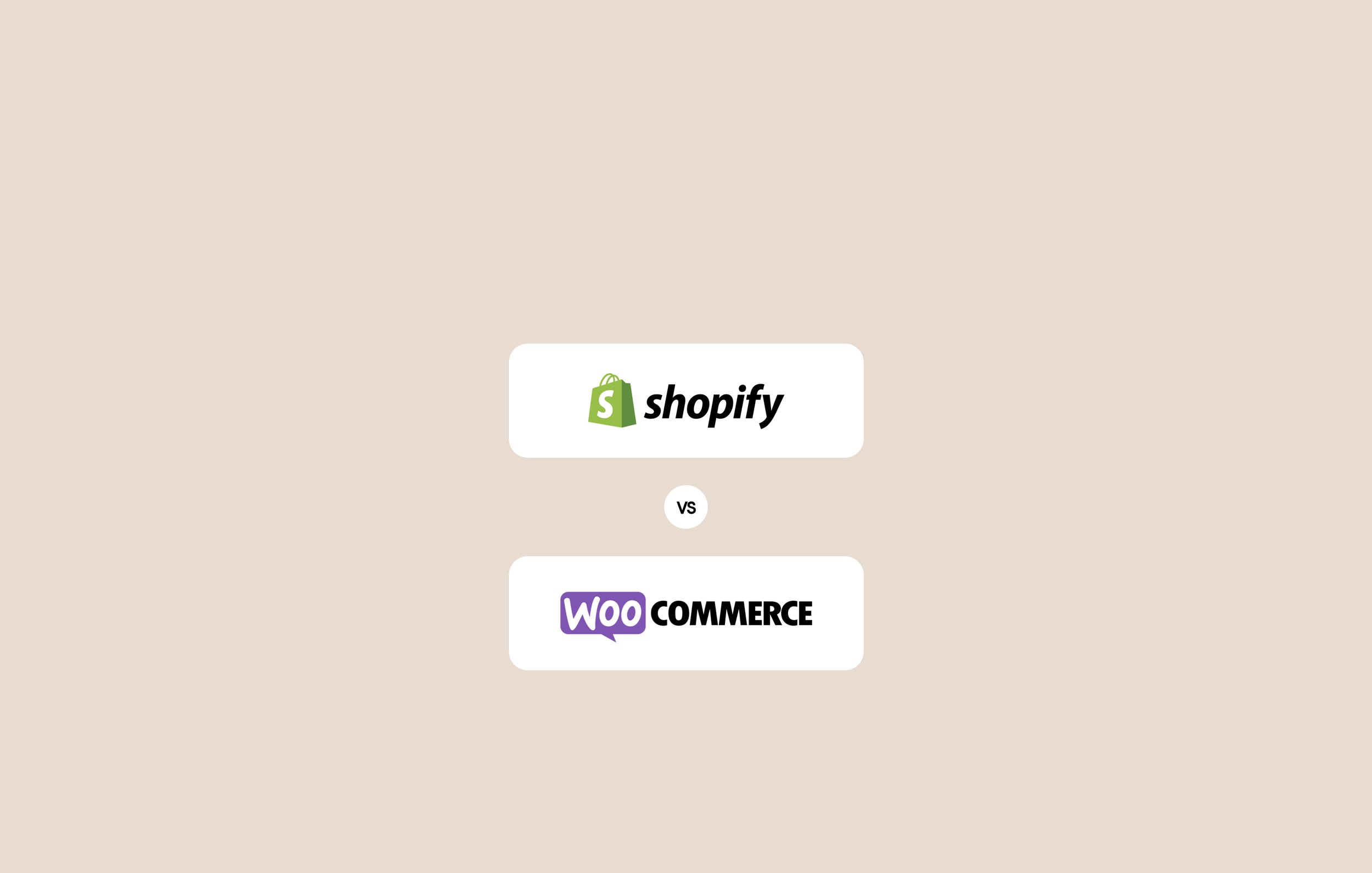
Shopify vs WooCommerce:
The Best Platform for Your Online Business
Choosing the right eCommerce platform is one of the most important decisions you'll make as a business owner. Whether you're starting a new online store or migrating an existing one, your choice of platform can have a huge impact on your store's success. Shopify and WooCommerce are two of the most popular options, each offering unique features and benefits tailored to different needs.
In this article, we'll compare Shopify and WooCommerce based on key factors like ease of use, design, cost, features, scalability, pricing, marketing and more to help you decide which one is the best fit for your business in 2024.
Shopify vs WooCommerce
A Quick Overview
Shopify: The biggest Ecommerce platform in the world in terms of market share. An all-in-one eCommerce platform designed to be user-friendly. It’s ideal for entrepreneurs and businesses that want a hassle-free, easy-to-use solution with built-in hosting, security, and support. It hosts notable A-Brands such as Gymshark, Allbirds, Kylie Cosmetics.
WooCommerce: A WordPress plugin that turns your website into an E-commerce store. It’s open-source, highly customizable, and convenient for users who are already familiar with WordPress and have technical knowledge.
Shopify vs WooCommerce: Comparison Overview
Here's a side-by-side comparison of Shopify and WooCommerce across several key factors:
| Feature | Shopify | WooCommerce |
|---|---|---|
| Ease of Use | Easy to use with a simple drag-and-drop interface. Little technical knowledge required. | Requires some technical expertise to set up and manage, especially for hosting and security. |
| Pricing | Starts at €27/month (Basic Plan) + transaction fees. Higher-tier plans have more features. | Free plugin, but you need to pay for hosting, domain, themes, and plugins. Can be cost-effective if you manage it yourself. |
| Hosting | Fully hosted solution—Shopify takes care of hosting, security, and maintenance. | Self-hosted. You must purchase hosting separately (e.g., Bluehost, SiteGround), which adds to the overall cost. |
| Customization | A lot of customization without coding knowledge. You can access a wide range of apps and themes to extend functionality. | Highly customizable with the ability to add custom code. However, requires WordPress and WooCommerce knowledge to make advanced customizations. |
| Transaction Fees | Charges a transaction fee (starting at 1%) | No transaction fees from WooCommerce itself, but you may pay transaction fees depending on the payment processor (PayPal, Stripe). |
| Payment Gateways | Over 100 payment gateways, including Shopify Payments (which is required to avoid additional fees), Mollie, Stripe, etc. | WooCommerce supports over 100 payment gateways, including PayPal, Stripe, and bank transfers. |
| Themes & Design Options | Offers a variety of professional themes. Customization requires basic coding knowledge. Free Themes available, Premium Themes start at €100. | Unlimited design flexibility. Thousands of free and premium WordPress themes. More flexibility but requires technical knowledge for full customization. |
| Apps & Plugins | Over 7,000 apps available in the Shopify App Store to extend functionality, such as marketing tools, inventory management, etc. | Thousands of plugins available through WordPress repositories, but some may require additional development to integrate smoothly with WooCommerce. |
| SEO & Marketing | Powerful built-in SEO tools and apps like SEO Booster. Marketing tools for social media, email, and Google ads are integrated. | Excellent SEO capabilities due to WordPress' structure. Needs additional plugins like Yoast for optimal SEO. |
| Marketplace | Sell directly from Shopify to many marketplaces such as Bol.com, Amazon, Ebay, Etsy, etc. | Plugins to sell on platforms like Amazon, Etsy, Ebay. |
| Customer Support | 24/7 support via chat, email, and phone. Extensive help center with tutorials. | Community-based support, forums, and third-party services. Support from hosting providers and plugin developers. |
| Scalability | Great for scaling. Shopify can easily handle large volumes of traffic and transactions with minimal effort. | Scalable, but as you grow, you’ll need to manage hosting, updates, security, and performance optimization. |
| Security | Shopify offers SSL certification, PCI compliance, and automatic security updates. | Requires you to set up your own SSL certificate, PCI compliance, and security measures, including regular updates. |
| International Selling | Supports international currencies, languages, and shipping options out of the box. | With the right plugins and customization, WooCommerce can handle international selling, but it requires additional setup. |









